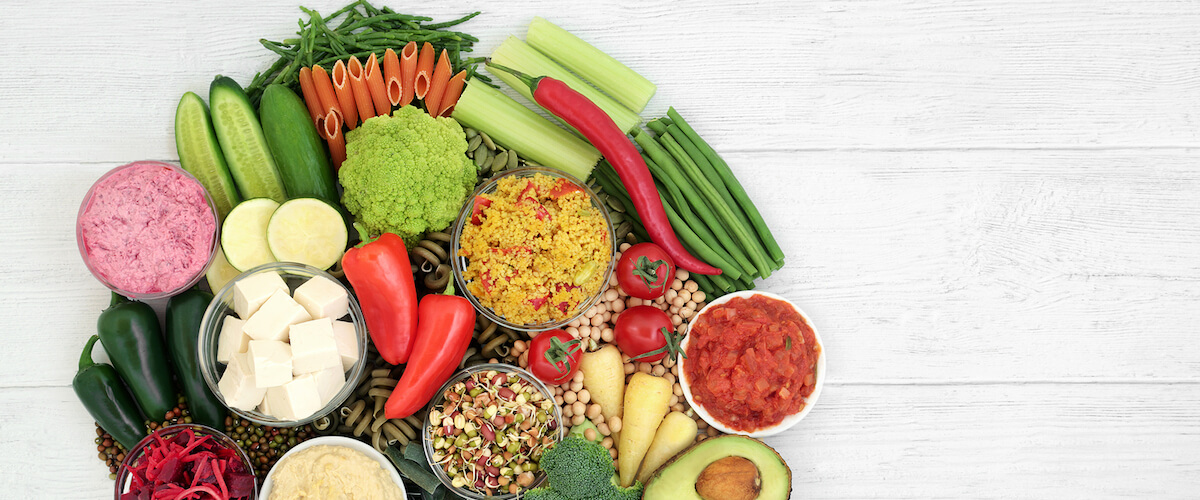Why are Whole Foods Better for your Health than Processed?
We’ve all heard statements such as:
“Highly processed foods are bad for your health.”
“If you want to stay healthy and at normal body weight, eat whole and minimally processed foods.”
The thing is, statements without backing don’t seem that convincing.
Because of that, we’ve taken it upon ourselves to put this guide for you and go over everything you need to know about whole and processed foods.
See why it’s better to eat whole foods….
Whole Food & Processed Food 101
Before we dive into the differences between whole and processed foods, let’s get a quick understanding of what whole foods are and what processed foods are
What are whole foods?
Whole foods are plant foods that are unprocessed and unrefined. Or, if they are processed in any way, it’s only minimally - they are also known as healthy processed foods.
So, what are whole foods?
Well, this includes foods like whole fruits, veggies, whole grains, legumes, and tubers.
What are processed foods?
By definition, processed foods are those that have gone under several chemical and/or mechanical processes.Such foods have altered structure, taste, smell, texture, or all of the above.
So, what are processed foods?
If your food comes in a box or a bag and has a whole list of ingredients, it more than likely is processed.
Why are whole foods good for you?
Whole foods are good for us because they provide the body with a wide range of nutrients it needs to function correctly. Such foods also tend to be lower on calories and more satiating, which means that we are much less likely to overeat on them and become overweight.
So, why are whole foods good for you?
Well, if you want to stay healthy and live a long and vibrant life, then you should base your diet on whole foods.
Why are processed foods bad for you?
Processed foods are often full of ingredients that can only be made in a lab. Some examples include hydrogenated oil, artificial sweeteners, and high-fructose corn syrup.
Such ingredients are told to have adverse long-term health effects on us.
So, why are processed foods bad for you? For one, they negatively impact our health. Second, they are often calorie-dense and delicious, which makes it easy to overeat on them and gradually become overweight.
What is the difference between whole foods and processed foods?
Processed foods, as we stated, are those that have gone through various chemical or mechanical processes. Whole foods, on the other hand, are unprocessed and unrefined.
So, what is the difference between whole foods and processed foods?
Processed foods are human-made and often come in a box. Whole foods are as nature intended them, and are much healthier for us.
A list of whole foods:
• Fruits and veggies
• Whole grains
• Seeds and legumes
• Nuts and natural nut butter
• Seafood
• Spices, seasonings, and herbs
• Tea, coffee, and water
• Olive and coconut oil
A list of processed foods:
• Crackers and cookies
• Breakfast cereals
• Candy and candy bars
• White bread
• Chips
• Sausage rolls, ham, salami, etc.
• Microwave-ready meals
Why Are Whole Foods Better for Your Health Than Processed Foods?
Whole foods are better than processed ones because they provide the body with the vast array of nutrients it needs to function correctly. They are also more satiating and lower on calories, which means that we are much less likely to overeat on whole foods and gain weight.
Processed foods are full of ingredients that are made in a lab, have negligible nutritional value, and may lead to adverse health effects down the line.
Are There Whole Food Diets?
In the modern world we are living in, there are hundreds if not thousands of diets to pick from - some better and healthier than others.
So, are there whole food diets? Absolutely. The three most famous examples these days are the keto, vegan, and plant-based diets. Let’s take a look at some of the food options in each of these diets:
Whole foods for keto diets
Here’s a list of whole foods for keto diets:
• Fish and meats
• Low-carb veggies
• Avocado
• Eggs
• Coconut and olive oil
• Nuts and seeds
• Berries (in moderation)
• Olives
Whole foods for vegan diets
Here’s a list of whole foods for vegan diets:
• Legumes
• Chia and flax seeds
• Seaweed
• Whole grains
• Fruits and veggies
• Nutritional yeast
• Tofu (minimally-processed)
• Nuts and nut butter
Whole foods for plant-based diets
Here’s a list of whole foods for plant-based diets:
• Fruits and veggies
• Fish
• Whole grains
• Nuts and nut butter
• Seeds
• Coconut and olive oil
• Avocado and olives
• Legumes
• Seaweed
Conclusion
Whole foods are much healthier for us than processed ones. There is tons of evidence to suggest that, and it doesn’t take much thought to realize that consuming human-made, calorie-dense, and highly addicting foods isn’t exactly the most beneficial thing for our health.
And, given the fact that we can even follow various diets while eating mostly whole foods, we have no excuse not to do so.

